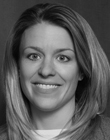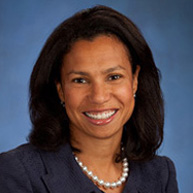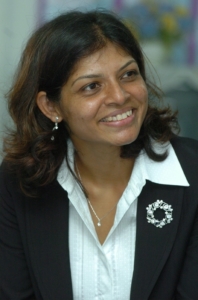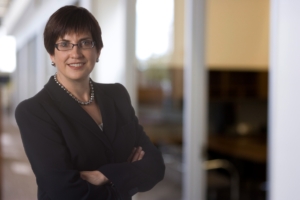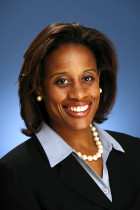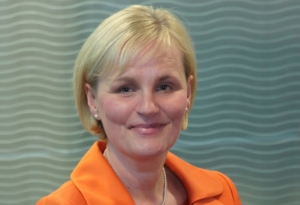 Amanda Blanc began her career in 1989 as the first female and youngest branch manager at Commercial Union. She achieved many other top positions during the following years, which taught her one important lesson: a lack of confidence can stop many women from reaching their true dreams.
Amanda Blanc began her career in 1989 as the first female and youngest branch manager at Commercial Union. She achieved many other top positions during the following years, which taught her one important lesson: a lack of confidence can stop many women from reaching their true dreams.
When she mentors other women she realizes that, when looking at the list of competencies in job descriptions, they focus on that one particular qualification that they do not meet. In contrast men will feel qualified for the job if they meet six out of ten competencies.
Women in the insurance industry have several barriers which they must overcome, and confidence is one of the qualifications that keeps this business, as Blanc described, “a man’s world, particularly at executive level.”
However, Blanc’s belief in her potential has led her to work as a consultant for Ernst & Young, as the regional director for AXA’s commercial intermediary business, as the distribution and customer services director at Groupama in 2003, as Chief Executive of Towergate Retail Division in The Towergate Partnership and, starting in 2011, as CEO of Commercial Lines and Personal Intermediary in AXA.
Her confidence in her abilities is only one of the reasons for her success. “I don’t do regrets or looking back. You just need to learn from any mistakes and move on without dwelling,” she explained.
Insurance and the Financial Crisis
Blanc identifies transparency as one of the key issues that the insurance industry must face, and knows that AXA’s effort to be more transparent with their customers is an important challenge.
“Insurance is notorious for indulging in acronyms and technicalities that are all but impenetrable to the man on the street. We are working on being much clearer, in layman’s terms, about what is and isn’t covered in a policy and what steps our customers can take to ensure that they do not breach any of the policy conditions. It might seem like a small thing, which it is, but it is pretty fundamental. I want our customers to be absolutely clear about what it is they are buying and how they use the policy when they need to.”
She also recognizes that “banking has received most of the public vitriol following the financial crisis, but the wider financial services community had much to feel sheepish about too, and insurance has certainly not been immune to some of the behaviours that have had such a catastrophic impact on banking. As financial institutions, we have lost the faith and trust of our customers, [whose] starting point now is that we are going to fleece them, and so they treat us accordingly. That is a shocking situation to find ourselves in and one that we must change.”
“It’s not going to change with lip service or marketing ploys. The only way we are going to get the customer back onside is by changing the way we behave, creating business models that deliver shareholder value through good customer experience and making sure that the necessary change in culture genuinely permeates throughout the business,” Blanc said.

